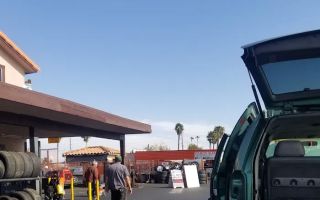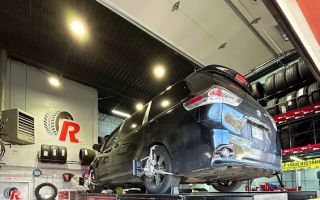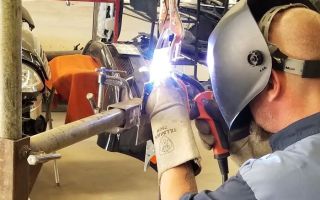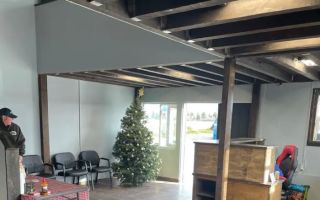How to Avoid Getting a Flat Tire in Winter
1. Understanding the Impact of Winter on Tires
Winter driving can be challenging for many reasons. Cold temperatures, snow, and ice can make the roads hazardous, but one of the most overlooked issues drivers face during this time of year is flat tires. I’ve personally encountered this problem before, and after a few stressful experiences, I’ve learned how to prevent it. Tires are incredibly vulnerable in winter conditions, and understanding the impact of cold weather on them is the first step to avoiding flat tires.
In the winter, tire pressure drops as the temperature decreases. For every 10°F drop in temperature, your tire’s pressure can decrease by about 1-2 psi. This reduction in pressure not only affects your car’s handling but can also cause tires to wear out faster or even blow out if not addressed. Additionally, the cold weather can harden the rubber, making tires more susceptible to cracks, punctures, and damage.
2. Checking and Maintaining Tire Pressure
One of the simplest yet most effective ways to prevent a flat tire in winter is by regularly checking and maintaining your tire pressure. As I learned the hard way, low tire pressure increases the risk of damage, especially when driving on icy or snowy roads. When your tires are under-inflated, they don’t make full contact with the road, leading to poor traction and higher chances of getting a flat tire.

MR. TIRE INC.
2078 New York Ave, Huntington Station, NY 11746, USA
2.1 How to Check Tire Pressure
Checking your tire pressure is straightforward. All you need is a tire pressure gauge, which you can get from any auto parts store or even online. Here’s how I check mine:
- Ensure the tires are cold, meaning the car hasn’t been driven for at least three hours.
- Remove the valve cap from each tire.
- Press the gauge firmly onto the valve stem and take the reading.
- Compare the reading to the manufacturer’s recommended tire pressure (you can find this info in the car manual or on the driver’s side door panel).
If your tire pressure is too low, fill it up using an air compressor, which can be found at most gas stations. Keep in mind that tire pressure should be checked at least once a month during the winter months to avoid flat tire risks.

MR. TIRE INC.
2078 New York Ave, Huntington Station, NY 11746, USA
2.2 The Importance of Correct Tire Pressure
Maintaining the correct tire pressure isn’t just about avoiding flats; it also improves your fuel efficiency, extends the life of your tires, and improves vehicle safety. Driving with properly inflated tires means you’ll have better traction on icy or wet roads, reducing the risk of accidents.
3. Inspecting Your Tires Regularly
In addition to checking tire pressure, regular tire inspections are key to avoiding flats. This is especially true during winter when the risk of road hazards like sharp objects, nails, or rocks is higher. I always make it a habit to inspect my tires for any visible signs of damage, such as cracks, cuts, or punctures. If I find any issues, I get them repaired immediately before they can worsen.
3.1 What to Look For During Inspections
When inspecting your tires, here’s what you should look for:
- Cracks or cuts in the sidewall.
- Bulges or blisters on the tire’s surface.
- Uneven tread wear or worn-out tread patterns.
- Sharp objects embedded in the tire (nails, glass, etc.).
If you spot any of these signs, it’s best to have the tire repaired or replaced right away to avoid the risk of getting a flat on the road.
3.2 Professional Tire Inspection
If you’re unsure about inspecting your tires yourself, many auto shops offer free or low-cost tire inspections. This is especially beneficial before winter, when the risks are higher. If you're in need of tire maintenance, don't hesitate to visit a professional to ensure your tires are ready for the winter roads.
4. Using Winter Tires
Winter tires are specifically designed to handle the extreme conditions of winter driving, and they can significantly reduce your chances of getting a flat tire in the colder months. These tires have deeper treads and softer rubber compounds that perform better on snow and ice. I’ve found that switching to winter tires every year gives me peace of mind, knowing I’m better prepared for the unpredictable winter weather.
4.1 The Benefits of Winter Tires
Winter tires are made to offer better grip and traction on snow, ice, and slush, reducing the likelihood of accidents and flats. Their unique tread patterns help prevent hydroplaning on wet roads, and the softer rubber provides better traction in freezing temperatures. If you live in an area that experiences harsh winters, investing in a good set of winter tires can make a huge difference in your driving experience and safety.
4.2 When to Install Winter Tires
The best time to switch to winter tires is before the first major snowfall or when the temperature consistently drops below 45°F (7°C). It’s important to get them installed early to avoid being caught off guard by unexpected snowstorms or freezing temperatures.
5. Real-Life Case Study: Avoiding a Flat Tire in the Snow
Last winter, I had a close call that really drove home the importance of winter tire preparation. I was on my way to work when I noticed my car was shaking as I drove over a patch of ice. At first, I thought it was just the road, but then I felt the steering wheel pull to one side. I immediately pulled over and found that one of my tires had a slow leak due to a puncture I hadn't noticed earlier.
Luckily, I had already checked my tire pressure before leaving, and my winter tires were in good condition. After calling Rescue & Towing for roadside assistance, the technician quickly patched the tire, and I was back on the road in no time. Had I not taken the time to check my tires and switch to winter tires, this situation could have been much worse, potentially leaving me stranded in the snow.
6. When to Call for Towing Services
Despite all the precautions, sometimes accidents or tire issues happen when you least expect them. If you find yourself stranded with a flat tire in the middle of a snowstorm or on an icy road, it's important to have a reliable towing service you can call. I’ve personally used Rescue & Towing during emergencies, and their fast response time and professional service made a stressful situation much more manageable.
If you ever find yourself with a flat tire in winter, don’t hesitate to reach out to Rescue & Towing for immediate assistance. Their expert technicians will ensure your safety and help get you back on the road as quickly as possible.
7. Conclusion
Avoiding a flat tire in winter requires proactive maintenance and attention to detail. By regularly checking your tire pressure, inspecting your tires, and using winter tires, you can significantly reduce the risk of experiencing a flat during the colder months. If you do find yourself in need of roadside assistance, don’t hesitate to call Rescue & Towing for fast, reliable service.
For more information or to schedule a service, visit Rescue & Towing and make sure your vehicle is ready for winter driving!























